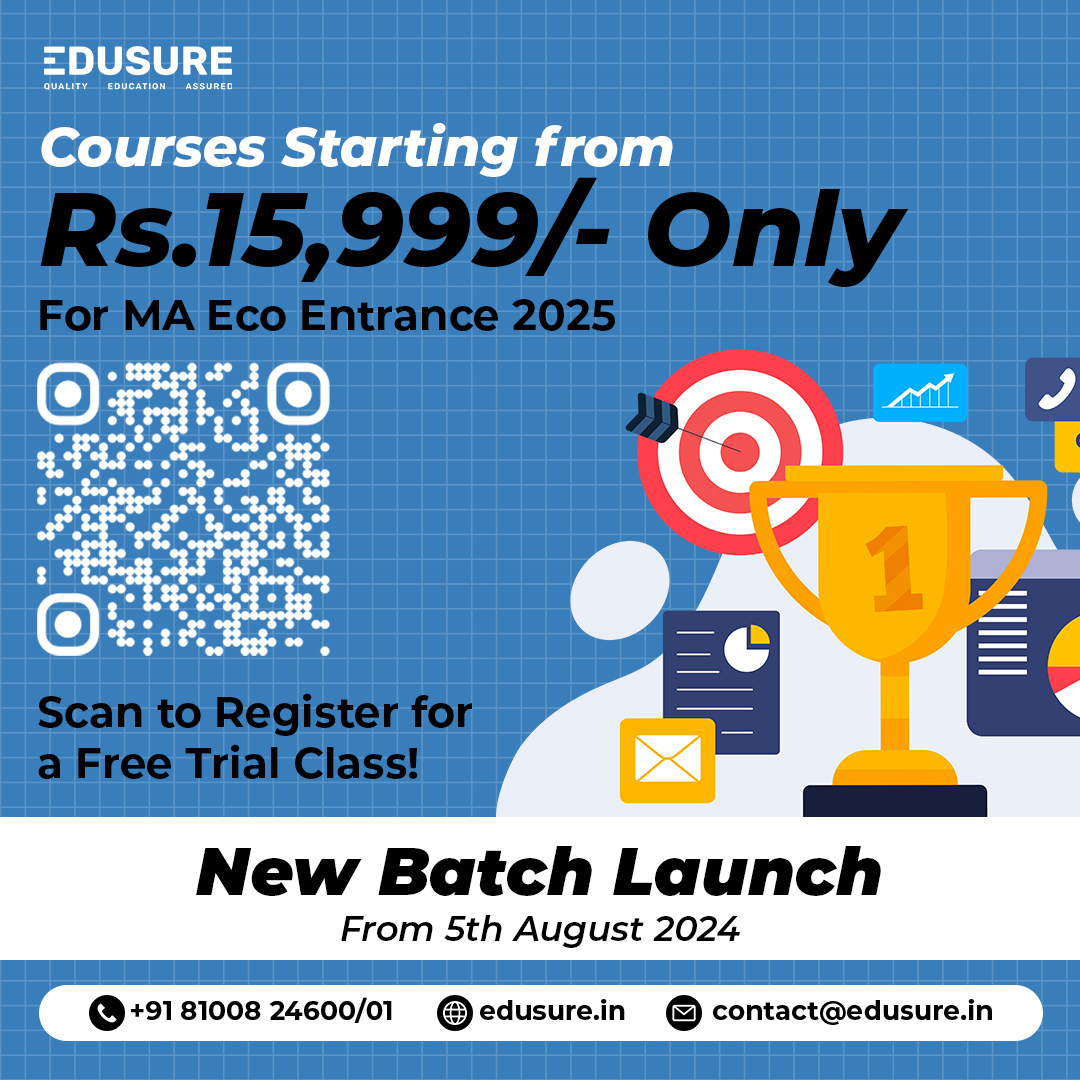Congratulations on your accomplishment in the GATE/JAM tests, which qualified you for the IIT Kanpur written test phase and secured your place in the prestigious institute. The written exam for shortlisted candidates will be held at IIT Kanpur on 15th June.
It is critical to grasp the examination pattern and target your preparation accordingly in order to gain admission. This blog will give you useful information about the IIT Kanpur MSc Economics Written Test and important areas of the test. Continue reading to learn efficient test-taking tactics and how to get into this elite programme.
Exam Structure:
The IIT Kanpur MSc Economics Written Test is divided into three sections: A, B, and C, each of which assesses a distinct subject. Understanding the structure and substance of each segment is essential for effective preparation.
Part A: Mathematics and Statistics (25 questions): Part A emphasizes math and statistics, with 25 questions. To excel in this section, focus on the following key areas:
- Binomial Theorem, AP, GP Series, and Permutation and Combination (8-9 questions): These topics carry significant weightage, so allocate ample time for practice and mastery.
- Linear Algebra (5-6 questions): Topics such as matrices, determinants, and linear equations are important. Ensure a solid understanding of these concepts.
- Calculus (6-8 questions): Dedicate time to topics like differentiation, integration, and their applications.
- Elementary Statistics and Bayes Theorem (5-7 questions): Focus on probability, random variables, and statistical inference, with an emphasis on Bayes’ theorem.
Part B: English and Logic (15 questions): Part B assesses your proficiency in English and logical reasoning. Concentrate on the following:
- Grammar: Brush up on grammar rules and enhance your understanding of sentence structure, tenses, and vocabulary.
- TOEFL/IELTS type academic reading type questions
- Logical Reasoning: Practice solving logical reasoning questions to develop critical thinking and analytical skills.
Part C: Basic Economics (10 questions): Part C tests your understanding of basic economics concepts. Focus on the following key points:
- CBSE Class 12 Micro and Macro Economics: Revisit the concepts covered in Class 12 textbooks. Topics such as supply and demand, market structures, national income, and inflation are vital.
Effective Strategies for Success:
- Focus on Part A: As Part A carries more weightage and may be more challenging, prioritize your preparation for this section. Allocate ample study time to the key areas mentioned earlier to ensure a strong foundation.
- Practice Sample Papers: Utilize the sample papers available on the official website to become familiar with the exam format and types of questions. Regular practice will improve your speed and accuracy.
- Time Management: Plan your study schedule efficiently, ensuring adequate time for each section. Devote more time to areas that require additional practice or revision.
- Seek Additional Resources: Supplement your preparation with additional study materials such as textbooks, online tutorials, and video lectures. These resources can provide further clarity on complex topics.
- Don’t give up. The exam is challenging, but it is possible to succeed. If you study hard and practice, you will be well on your way to success.
Recommended readings:
Part (A):
- Alpha Chiang and Kevin Wainwright. Fundamental Methods of Mathematical Economics.
- Irwin Miller & Marylees Miller. John E. Freund’s Mathematical Statistics with Applications.
- Gilbert Strang. Linear Algebra and its Applications.
- George B. Thomas, Joel Hass, Christopher Heil, Maurice D. Weir. Thomas’ Calculus.
- Joseph Blitzstein and Jessica Hwang. Introduction to Probability. Available at https://projects.iq.harvard.edu/stat110/home
- Martin J. Osborne. Mathematical Methods for Economic Theory. Available
https://mjo.osborne.economics.utoronto.ca/index.php/tutorial/index/1/int/i
Part (C):
National Council of Educational Research & Training textbooks “Introductory Microeconomics” and “Introductory Macroeconomics”
EduSure has the best and the most structured programme to crack the Master’s in Economics Entrance Exams. It’s a 12-year-old Institute with Rank 1 in DSE, JNU, IGIDR, and IIT amongst others consistently in the last few years.
To see student testimonials of Edusure and hear about their success: www.youtube.com/edusureschool
To speak to an Edusure student counsellor, please fill out this Enquiry Form or call on 8100824600.
For course, enrolment drop in your details on https://edusure.in/contact/ and we shall get back to you!
Ask a Question: edusureschool@gmail.com
contact@edusure.in
Subscribe: https://www.youtube.com/c/EduSureSchool
We hope this was helpful.
Happy Learning!!


